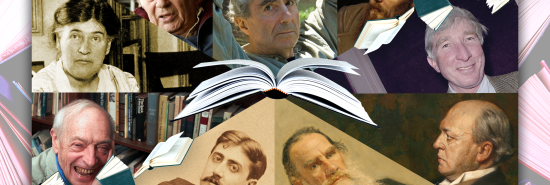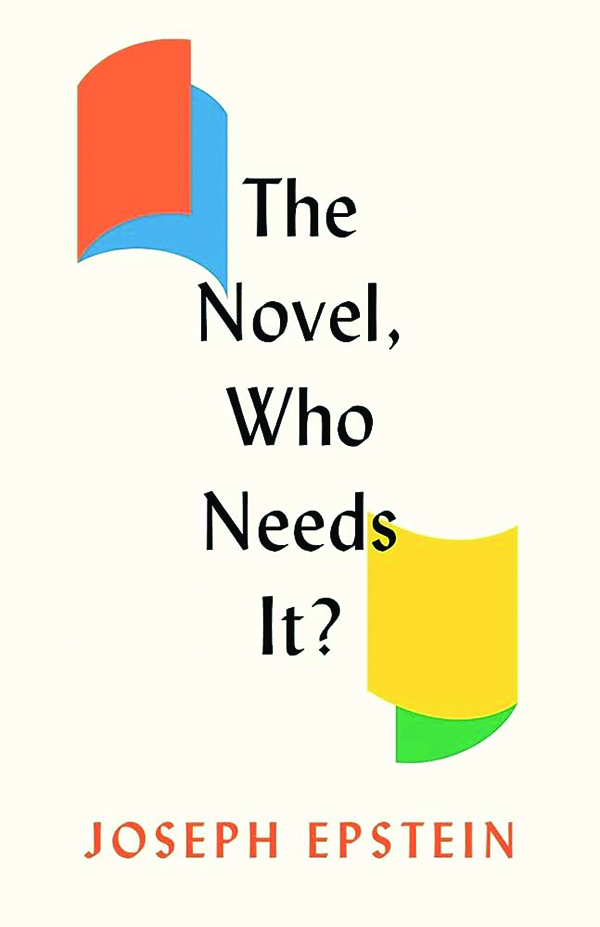
Keeping the novel alive by reading, and arguing, well
Alex Perez
Every piece about the state of the novel in contemporary culture must ask the infamous question, so let’s start there: Is the novel dead?

It’s a boring question, which functions as an entry point to broader cultural conversations, but the truth is that the novel isn’t dead, nor will it ever die. The novel’s relevance will wax and wane in accordance with technological shifts, but it will continue to exist in some form or fashion. The novel, especially the “serious” novel, has always been the preoccupation of a niche audience, but as this refined readership continues to decrease, a better question must be asked: How should a novel be? That is the question longtime literary critic and former editor of the American Scholar Joseph Epstein attempts to answer in his latest book, The Novel, Who Needs It?, a meditation on the novel’s history and its diminishing relevance in American society.
REVIEW OF TAKING THINGS HARD: THE TRIALS OF F. SCOTT FITZGERALD BY ROBERT GARNETT
The book takes the form of a long essay, clocking in at a perfectly digestible 126 pages, and focuses on what Epstein calls “serious” novels, which “possess a certain unmistakable gravity — fiction that implicitly asks the right questions, even if it doesn’t supply complete or satisfactory answers to them. These novels take human nature as the great puzzle it is and set out to connect a few of its vast number of pieces.” A literary critic is only as valuable as the clarity of their aesthetic judgment. Epstein’s is as crystalline as can be. In Epstein’s literary vision, the “serious” novel is “centered on moral conflict.” Epstein’s canon, consisting of some of the finest moral world-builders — Henry James, Willa Cather, Proust, Dostoevsky, and Tolstoy — tells you everything you need to know about his literary worldview: Books are serious business about serious issues. Literary play, which is to say stylistic hijinks, is ultimately unnecessary.
Epstein’s preference for seriousness is why he states that “style has its pleasures, and these are not inconsiderable, but it is not, cannot be, the central attribute of great novelists.” I bristled at this statement, for stylishness is what often separates the greats from the merely good. Stylishness is akin to playfulness, which, in Epstein’s literary aesthetic, distracts from the seriousness at hand. I reject that. Stylishness, when properly deployed, not only elevates serious matters but heightens aesthetic pleasure. An ability to turn a clever phrase, a penchant for absurdist humor, or even a slightly purple prose style are often the calling cards of the greats.
As I read on, I got the impression that Epstein conflated stylishness with decadence, which detracted from the all-important seriousness. My fears were confirmed when Epstein described Saul Bellow’s “powers of invention” as “slight.” This is preposterous. Epstein’s issue is that “most of the narrators were all clearly Bellow surrogates or alter egos. These narrators expostulate, opinionate, ruminate about the fall of the West while pondering why them, why were they chosen to be so tortured by modernity?” Epstein happens to hate Bellow’s ranting, but I happen to love its stylistic verve bordering (wonderfully) on the preposterous. One reads the great novelists — and Bellow is an undoubtedly great novelist — not only for the wisdom they impart but how they impart it. There are only so many “truths,” but the ways they can be disseminated are infinite in the hands of a master of language.
Epstein’s aesthetic vision, then, in which elevated style only serves to distract from the seriousness at hand, runs parallel to his moral vision for the novel, which is about “turning facts into ideas.” Epstein is a fine chronicler of the history of the novel, and he’s as well-read as anyone when it comes to the classics. But his distaste for flamboyance puts him at odds with my literary tastes, which is why our personal canons differ. When one judges the novel, as Epstein says, “taste of course enters in.” I agree with Epstein, of course, when it comes to the subjectivity of taste, but I cannot agree with his assessment of John Updike, in whose “novels one feels something missing, an element of gravity perhaps, a sense that the style employed is more significant than the content.” It may be a difference of our characters or of “taste” or of literary critical skill, but, grant whatever you want, I still think Epstein is wrong about Updike.
Epstein is also wrong about Philip Roth and Norman Mailer. He finds “their novels difficult to read because of what now seems an adolescent emphasis on sex.” Were Mailer, Updike, and Roth sex-crazed fiends at times? Absolutely! Thank goodness for their depravity and the novels it produced. And this makes one worry Epstein is reading his own narrow-mindedness or his own mere preferences (de gustibus…) as literary universal truths. For instance, Roth’s Portnoy’s Complaint, one of the funniest novels ever written, is passed off by Epstein as “his book about masturbation.” Are there copious amounts of choking the chicken in Portnoy’s Complaint? You bet. But to dismiss one of Roth’s masterpieces as a book about masturbation is a critical failure. Portnoy’s Complaint, like many of Roth’s great masterpieces, is about far more than unquenchable horniness. In his dismissiveness of Roth and his masculine ilk, one can make the case that Epstein thinks the novel should be serious and respectable above all else. He seems resistant to humor and doesn’t praise a single comic novel.
The Novel, Who Needs It? provides an enviable example of what a lifetime of serious reading can accomplish and how it can hone one’s specific sensibility. Epstein knows what he likes and will defend his tastes thoroughly. You may disagree at times, as I did, but differing tastes, when rooted in years of curation, can only be respected. When critics disagree, the answer posed by the title of Epstein’s book becomes clear: Different readers need different novels. Perhaps I need to reread Willa Cather and Epstein needs to give the horndog Roth another shot.
By his own admission, Epstein doesn’t read much contemporary fiction, so his book is best looked at as an appreciation of classic novels. He mentions Sally Rooney in passing, as well as Garth Greenwell, but readers looking for a deep dive into the contemporary novel will need to look elsewhere. I can safely assume, however, that Epstein wouldn’t approve of the autofictional turn American fiction has taken in the last decade, and he would certainly find the “internet novels” of Tao Lin less than stellar. Epstein is missing out. Still, if he wants to know where the novel is going — and how it is going — it might be a good idea for him to pick up Ottessa Moshfegh’s or Emma Cline’s latest. Epstein, at times, seems to forget that the novel, for better or worse, is not a static form. Nevertheless, as it develops — and thank God it certainly will — the traditionalists and lovers of the serious will play a key role in the chorus of criticism and readership that keeps this form alive.
CLICK HERE TO READ MORE FROM THE WASHINGTON EXAMINER
Alex Perez is a fiction writer and cultural critic from Miami. Follow him on Twitter @Perez_Writes.
